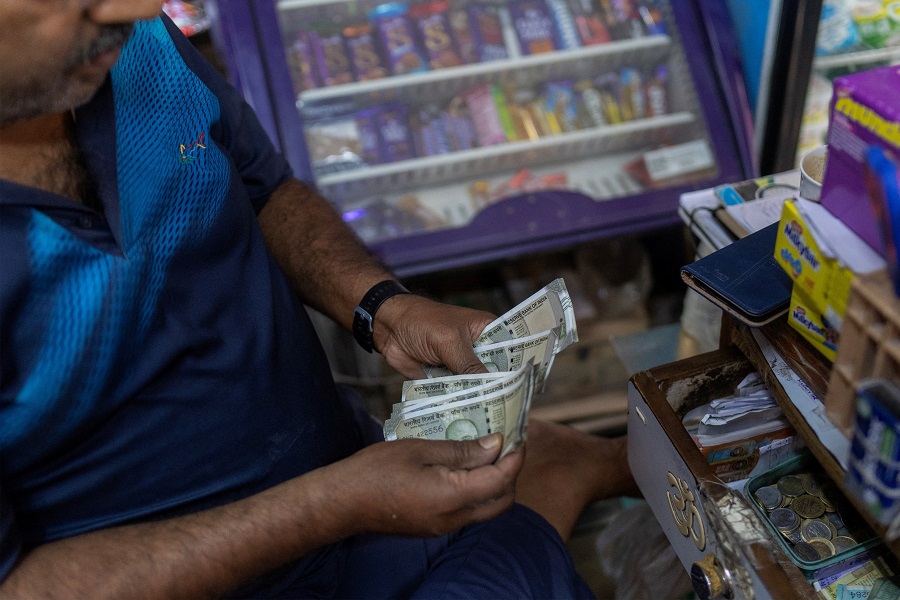India cenbank's FX intervention eases as conditions turn favourable for rupee

India's improving trade deficit, inflows into bonds and reduced pressure on the rupee in the offshore market has lowered the need for the Reserve Bank of India (RBI) to intervene aggressively in the foreign exchange market.
The RBI's interventions eased significantly earlier this year, with the RBI buying $8.5 billion in February and not making any sales, its latest monthly bulletin showed.
Its gross FX intervention in February was the lowest in six months and about an eighth of the average monthly intervention during October-December.
"Pressures (on the rupee) eased in the January-March period vis-a-vis October-December, which in turn reduced the magnitude of intervention," Vivek Kumar, an economist at QuantEco Research said.
Kumar reckoned that factors like the drop in India's trade deficit would have contributed to the reduced FX activity. The merchandise trade deficit narrowed to an 11-month low in March.
India's current account will wing to a surplus in the March quarter, economists said.
The data on RBI's total FX activity reflects its two-sided interventions in the onshore spot and non-deliverable forwards market as well as the maturity of forwards, a person familiar with the central bank's thinking said.
"When the conditions are favorable and the RBI doesn't need to intervene in the offshore market, the gross amount will come down," this person said, requesting anonymity as they are not authorised to speak to the media.
While data for the total turnover in the non-deliverable forwards market is not available, the ratio of RBI's FX activity to the interbank spot and forwards market turnover is a comparative metric.
This ratio declined from 0.14 in October to 0.01 in February, signaling a decline in the extent of RBI's interventions.
The fall in RBI's forex market activity followed the IMF's December reclassification of India's exchange rate regime to "stabilised arrangement" from "floating".
"The decline in RBI's aggregate FX intervention may have been co-incidental with the IMF's reclassification," Dhiraj Nim, an economist at ANZ Bank said.
Going forward, the FX interventions are likely to be concentrated towards buying dollars as the central bank would look to absorb inflows and limit the rupee's appreciation against peers like the Chinese yuan, Nim said.
























